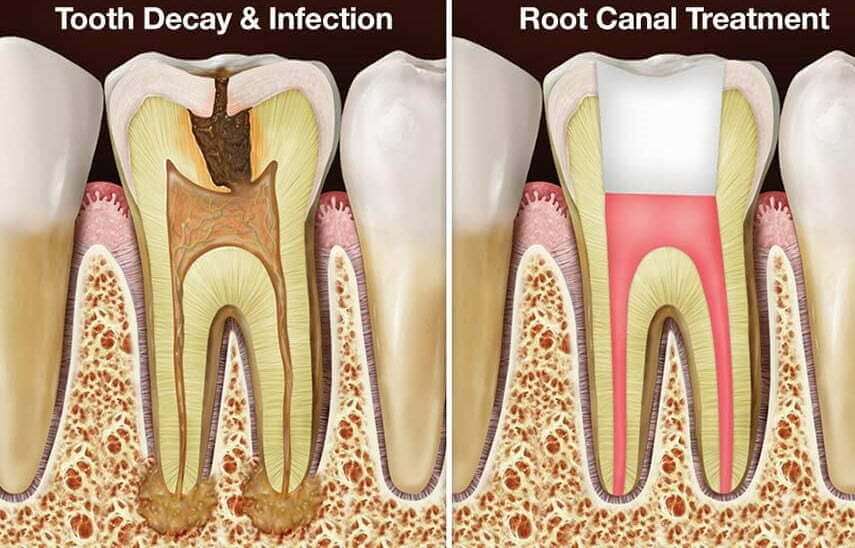Root Canal Treatment
Root canal treatment, also known as endodontic treatment, is a dental procedure designed to save a tooth that's infected or severely inflamed
The inner part of your tooth, called the pulp, contains nerves, blood vessels, and connective tissue. If this pulp becomes infected due to deep decay, trauma, or other reasons, it can cause pain, swelling, and even abscesses (pus-filled pockets) around the tooth. A root canal treatment addresses this infection and prevents the tooth from needing extraction.
